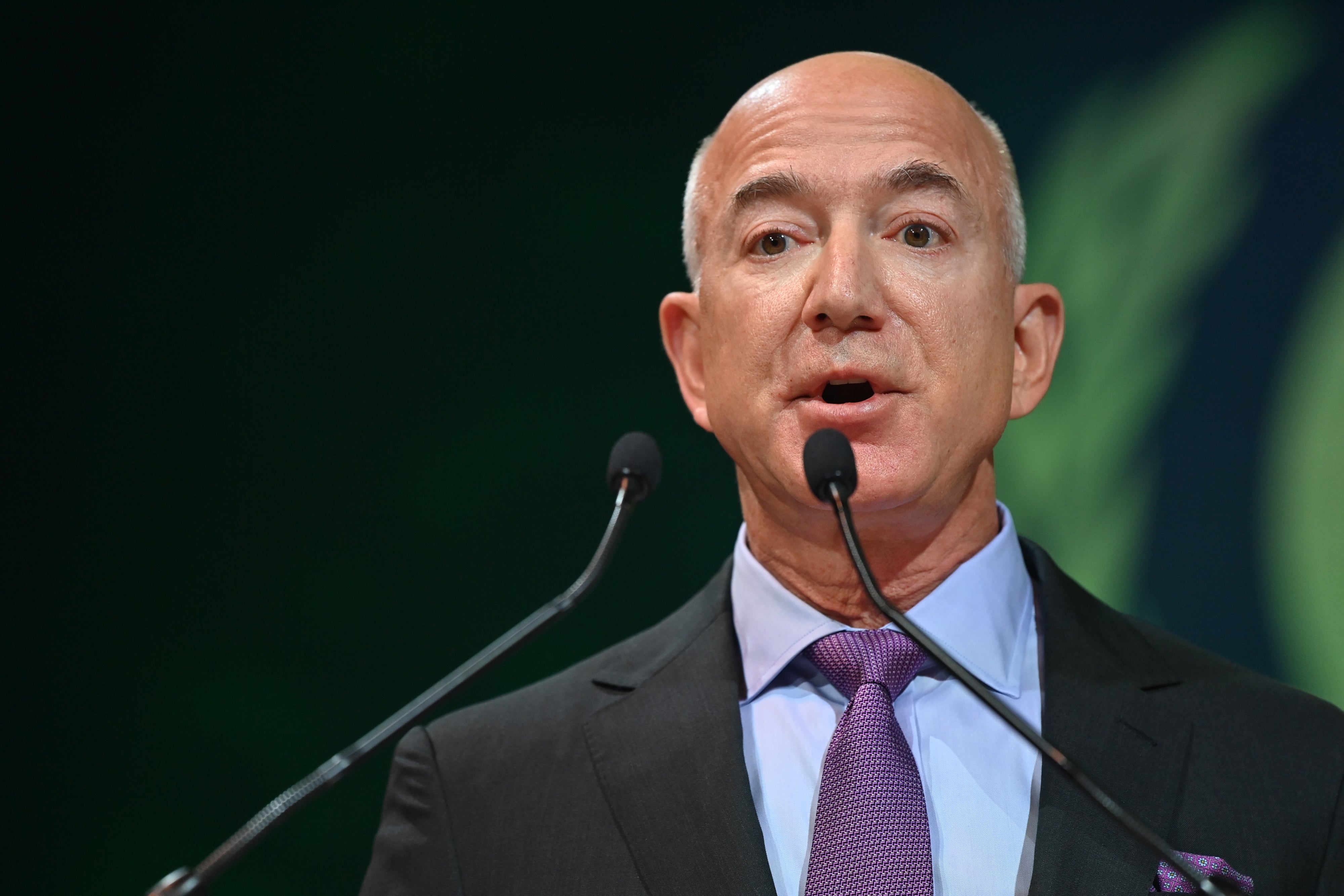Bezos insists no quid pro quo in decision to pull Washington Post’s Harris endorsement as staff and subscribers quit
Amazon founder argued endorsements don’t move voters and end up harming paper’s credibility
Amazon founder Jeff Bezos is defending the decision of The Washington Post, which he owns, to end its tradition of presidential endorsements ahead of Election Day.
The billionaire argued in a Post opinion piece on Monday that endorsements have little practical effect and contribute to record-high perceptions that the media is untrustworthy.
“Presidential endorsements do nothing to tip the scales of an election,” Bezos wrote. “No undecided voters in Pennsylvania are going to say, ‘I’m going with Newspaper A’s endorsement.’ None. What presidential endorsements actually do is create a perception of bias. A perception of non-independence.”
Post journalists and subscribers decried the move to end endorsements, which was announced last week as the paper’s editorial board reportedly prepared to back Kamala Harris.
The decision led to multiple resignations in protest.
Journalists Bob Woodward and Carl Bernstein, who helmed the paper’s iconic coverage of Watergate, criticized the move.
“We respect the traditional independence of the editorial page, but this decision 11 days out from the 2024 presidential election ignores the Washington Post’s own overwhelming reportorial evidence on the threat Donald Trump poses to democracy,” the men wrote in a statement. “Under Jeff Bezos’s ownership, the Washington Post’s news operation has used its abundant resources to rigorously investigate the danger and damage a second Trump presidency could cause to the future of American democracy and that makes this decision even more surprising and disappointing, especially this late in the electoral process.”

The announcement also led to a staggering wave of canceled subscriptions, with more than 200,000 reportedly ending their support of the Post as of Monday, an estimated eight percent of the paper’s total paid circulation.
Some critics of the decision argued the Post was avoiding criticizing Trump because owner Bezos frequently does business with the federal government through his Blue Origin space company and other ventures.
Others argued the endorsement was part of Bezos’s reported interest in expanding the paper’s reach with consersatives.
Robert Kagan, a longtime columnist and editor at the Post, who resigned in protest, accused Bezos of engaging in a “quid pro quo,” pointing to a meeting between Blue Origin executives and Trump that came after the paper’s announcement.
In his article, Bezos denied this assertion, though he acknowledged “when it comes to the appearance of conflict, I am not an ideal owner of The Post,” because of the numerous contacts between his business and philanthropic interests and the government.
“I would also like to be clear that no quid pro quo of any kind is at work here,” Bezos wrote. “Neither campaign nor candidate was consulted or informed at any level or in any way about this decision. It was made entirely internally.”
Last week, William Lewis, the publisher and CEO of the Post, defended the decision in an editor’s note, pointing to the paper’s history of going periods without making an endorsement.
“We also see it as a statement in support of our readers’ ability to make up their own minds on this, the most consequential of American decisions — whom to vote for as the next president,” Lewis wrote.
The Washington stalwart isn’t the only billionaire-owned paper facing pushback over its editorial board.
The Los Angeles Times also declined to endorse a candidate this election, with news reports and former staffers accusing owner Dr. Patrick Soon-Shiong of canceling a planned Harris endorsement, while the owner claims the editorial board didn’t comply with a request to supply non-partisan evaluations of both candidates.
Join our commenting forum
Join thought-provoking conversations, follow other Independent readers and see their replies
Comments
Bookmark popover
Removed from bookmarks